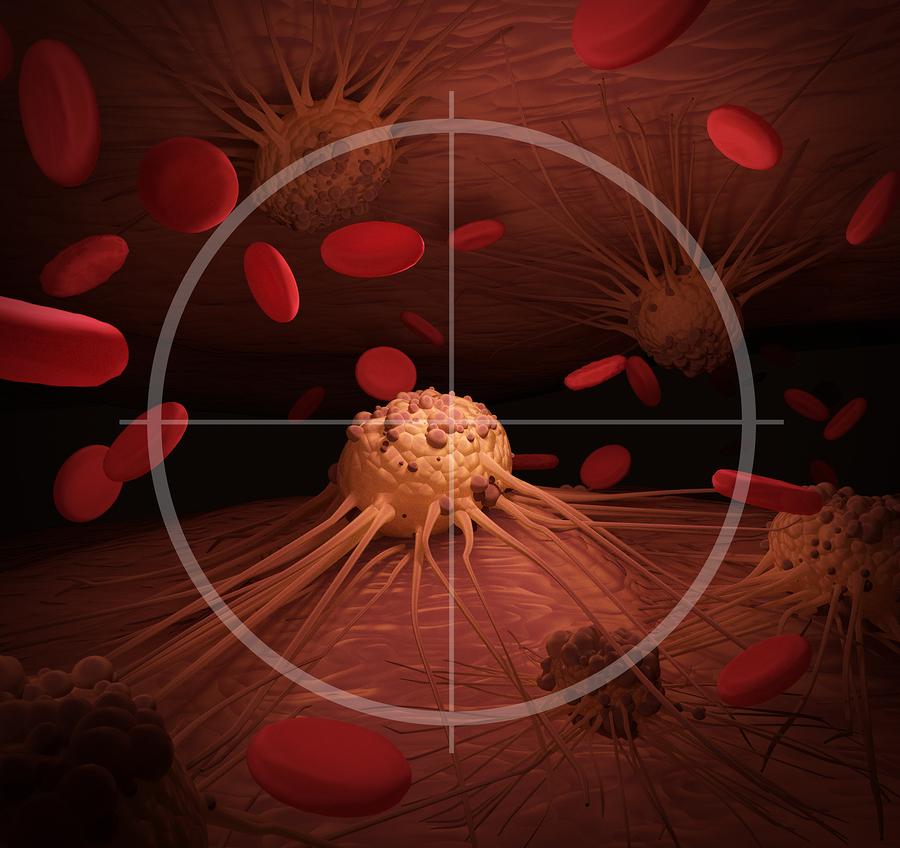
What is Cancer?
Cancer is the collective term for more than 100 diseases that are characterised by the growth of cells in an uncontrollable and abnormal way.
Within a healthy body it is normal that cells will grow, die and be replaced. When cancer is present these cells will often continue to multiply instead of dying naturally. This mass of cancerous cells is known as a tumour.
Malignant cells from a tumour can break away into the circulatory system and travel to other parts of the body. These cells may then form new tumours. This is known as metastasis and is normally the reason for a terminal diagnosis.
Genetics and Family History
If you have a family of history of cancer then this does not necessarily mean you are going to develop cancer.
Faults within a gene can cause the cell to stop working properly. When the cell does not work properly due to these faults, it can then become cancerous and begin to grow in an abnormal way.
Certain people are considered to be at a heightened risk of developing cancer because they have inherited a faulty gene. However, these faults can also occur as a result of gene changes during the natural life cycle of the body.
Inside each of the cells in the body is a nucleus, which is essentially the control centre for the cell. There are 23 chromosomes contained within each nucleus and these chromosomes are made up of genes. It is the job of these genes to tell cells how to behave, and to control the growth and development of the body.
Certain faulty genes that increase the risk of a person developing cancer can be passed from parent to child. This can be because of a fault in the sperm cell or the egg cell. These faulty genes are known as cancer susceptibility genes. When a person has a faulty gene, every child that they parent will have a 1 in 2 chance of inheriting that gene. This does not mean that the child will definitely develop cancer, it simply puts them at an increased risk. Additional gene mutations will need to occur for a person with a faulty gene to develop cancer. Approximately 2% of all cancers are connected to a faulty gene.
Environmental and Occupational Influences
Certain environmental exposures can cause damage to our cells and cause cancer to develop. The biggest culprits are tobacco smoke, ultraviolet rays from the sun and radiation.
It is possible to limit your exposure when it comes to tobacco smoke and the sun, but other carcinogens are harder to avoid. Sometimes these things are in the air that we breathe, the food that we consume and the materials that we come into contact with.
Obesity and Dietary Factors
The prevalence of certain cancers is exacerbated by obesity. Excess fat in the body is problematic for many health related reasons. When it comes to cancer this is true for several reasons:
- Fat tissue, also known as adipose tissue, increases the presence of oestrogen in the body. Too much of which can contribute to breast cancer and endometrial cancer.
- Increased insulin levels, which can contribute to the development of tumours.
- Obese people experience higher levels of chronic inflammation, which has been linked to an increased risk of cancer.
Preventing Cancer
Smoking is the biggest preventable cause of cancer, and is responsible for the most cancer deaths. A healthy diet is the second biggest preventable cause, and choosing a diet rich in fruits and vegetables, whilst avoiding red meats and processed foods, is known to reduce the risk of cancer.
Exercising regularly can also help with cancer prevention as this has a direct impact on your weight, your hormone levels and digestion. It is important to adequately manage all of these things to best equip your body to prevent cancer.
The lymphatic system plays an essential role in cancer prevention as it helps to fight bacteria and eradicate abnormal cells, such as those that may become cancerous. The lymphatic system is made up of of several tubes and lymph nodes that are connected throughout the entire body. If your lymphatic system isn’t functioning well then you are then at a heightened risk of developing cancer. By managing your stress levels, exercising regularly and following a diet that encourages the removal of toxins from the body, you will be promoting the optimum health of your lymphatic system.
There is a strong link between the quality of sleep you enjoy and your chance of developing several health conditions, such as cancer, diabetes, stroke and heart disease. Research suggests that the incidence of breast, prostate and colorectal cancers are heightened by a poor sleep pattern. The average adult should aim to get between seven and eight hours of undisturbed sleep each night. Failure to do so can cause inflammation in the body and compromise the immune system.
Early Detection and Diagnosis
There are several early warning signs that can indicate the presence of cancer. Common signs include persistent breathlessness, persistent indigestion, an ongoing change in your bowel motions, blood in your urine or faeces, trouble swallowing, unexplained weight loss, unusual swelling and night sweats.
If you believe you are experiencing one or more early symptom of cancer then it is essential that you visit your doctor as soon as possible. If they are in agreement that you are at risk, then screening tests can be organised. Early detection greatly improves the outcome of treatment, which is why screening is so important.
References
1) http://www.nhs.uk/Livewell/preventing-cancer/Pages/preventing-cancer-home.aspx
Related Posts
Cigarettes May Inhibit Inflammation Treatments
Axial spondyloarthritis, also known as AxSpa, is a chronic…








